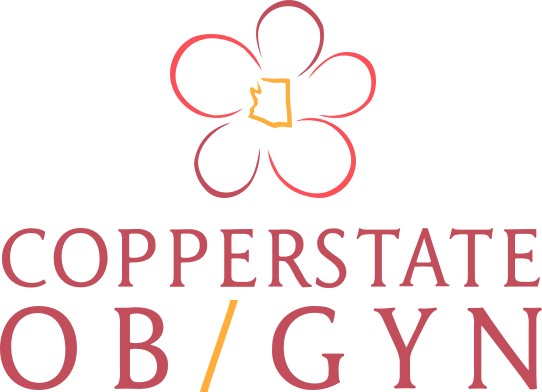Breastfeeding is good for both you and your baby. Breastfeeding helps you bond with your newborn, and can even relieve stress and reduce the risk of heart disease and diabetes.
The most important thing about breastfeeding is that breast milk contains all the nutrients your baby needs to grow. It can even potentially protect your baby from sickness. Some providers refer to breast milk as “liquid gold.” Once you start breastfeeding, you’ll understand why it’s easy to compare to gold, as it takes a lot of energy for your body to create nutrient-dense milk.
Create a breastfeeding diet to increase milk supply and eat foods that promote milk production. With the right diet, you’ll have the most nutrient-dense breast milk for your baby.
The Science of Breast Milk
Your breast milk should contain everything that your baby needs to grow. Since your baby relies on your breast milk, you have to eat the right foods to fuel your body with nutrients. If you don’t get the right nutrients, your breast milk will suffer.
Breast milk is made up of 87% water, 7% carbohydrates, 3.8% fat, and 1% protein. Your body is so sensitive that it can even change its composition and calorie content depending on your baby’s needs. When you start breastfeeding, the milk is usually more watery to quench your baby’s thirst. The thicker milk with nutrients comes later. To ensure your baby gets all the water and nutrients it needs, be sure to breastfeed until your baby empties both breasts.
What to Eat When You’re Breastfeeding
When you’re breastfeeding, you want to focus on a diet that promotes milk production and gives you the healthiest breast milk possible.
Focus on Nutrients For Healthy Breast Milk
Nutrients from your body supply your breast milk. Because of this, you’ll need to focus on eating enough nutrients so you can pass them onto your baby. Here are some nutrients important for breastfeeding mothers:
- Vitamin B1- nuts, beans, pork, fish
- Vitamin B2- red meat, nuts, cheese, almonds, eggs
- Vitamin B6- poultry, potatoes, bananas, chickpeas, nuts
- Vitamin B12- yogurt, oily fish, nutritional yeast, shellfish
- Choline- peanuts, fish, eggs
- Vitamin A- dark leafy greens, carrots, sweet potatoes, eggs
- Vitamin D- cod liver oil, mushrooms, fortified foods, oily fish
- Selenium- seafood, turkey, seeds, whole wheat
- Iodine- cod, milk, dried seaweed, iodized salt
- Iron- poultry, seafood, beans, green vegetables, red meat
- Folate- leafy greens, asparagus, avocados, beans, lentils
- Calcium- cheese, yogurt, milk, leafy greens, legumes
- Copper- nuts, beans, shellfish, whole grains, potatoes
- Zinc- poultry, beans, nuts, dairy
If you don’t eat enough of these nutrients, your body may deplete your own stores to supplement your breast milk. Make sure you don’t replenish your body’s resources by incorporating enough foods in your breastfeeding diet that promote milk production.
Eat Regular Meals
Ensure you’re consistently getting enough nutrients by eating regular meals. You may feel tempted to skip meals to cut down on calories, which isn’t recommended while you’re breastfeeding. Even if you’re busy, make time to eat well-balanced meals throughout the day. If you don’t have time to make meals every day, consider meal-planning and freezing meals ahead of time.
Eat Breastfeeding Snacks
Breastfeeding can make you feel extra hungry and thirsty. Fight off fatigue by eating breastfeeding snacks whenever you’re feeling a little peckish. You can keep some healthy snacks in your baby’s nursery so you can grab one while you’re breastfeeding. Some healthy breastfeeding snack ideas could include a banana, squeezable yogurt pack, or crackers.
Foods To Promote Lactation
If you find you need to make a little more breastmilk, there are some foods you can eat that will increase your milk supply. Oats, fenugreek, and brewers yeast are all considered lactation supplements that will increase milk supply. You can also try lactation tea, which is readily available at drugstores and grocery stores.
What to Avoid When Breastfeeding
Caffeine
Caffeine is safe in moderation. Just be sure to not go overboard on your favorite drink. As long as you stay below 300 mg of caffeine – about 3 cups of coffee – a day, your baby shouldn’t get the caffeine in your breastmilk.
Alcohol
Even a single alcoholic beverage isn’t recommended while breastfeeding. Despite some false rumors, it has no benefits for your milk supply and it won’t help your baby sleep. If you’re determined to have some alcohol, wait at least two hours per drink before your next breastfeeding session. This should reduce the amount the baby will receive.
Breastfeeding is a short, but wonderful time where you get to connect with your baby and nourish their growing bodies. Make sure you eat the right breastfeeding diet so your baby can grow healthy, happy, and strong.
Originally published: November 2nd, 2021
References:
– https://www.healthline.com/nutrition/breastfeeding-diet-101#nutrient-groups

